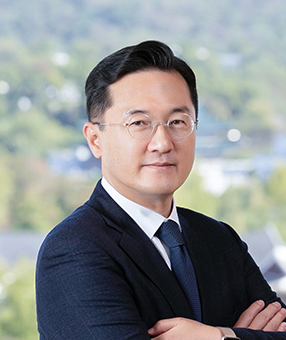President Yoon Suk-yeol stated at the cabinet meeting held on July 5, 2022 that he would preside over weekly “Emergency Economy and Public Welfare Meetings” (“Meetings”). So far, there have been five Meetings where President Yoon has discussed matters related to providing economic support to the public. During the second Meeting held on July 14, the main topic was public welfare issues involving the financial sector. As regulatory authorities will soon be rolling out follow-up measures, it will be important to see how those measures impact the financial industry.
1. Key Details of “Public Welfare Support Plan (Financial Sector)”
The Public Welfare Support Plan involving the financial sector announced on July 14, 2022 consists of refinancing (such as applying low and fixed interest rates or extending the maturity of existing loans), debt rescheduling (including relief of principal and interest) and new financing (such as providing support for living expenses and emergency funds) aimed at alleviating the economic pressure resulting from high interest rates on small businesses, households, young adults and the working class.
(1) Financial Support for Sole Proprietors and Small Business Owners
With the existing loan maturity extension and principal/interest repayment deferral programs for small and medium enterprises (SMEs) and small businesses set to end in September 2022, the government’s SME support policy will shift from the current debt deferral regime to a debt relief regime. The government will group the target population into three categories and provide customized financial support worth approximately KRW 80 trillion, which will include the creation of a “New Start Fund” (for debtors with structurally distressed debt), establishment of a refinancing program (for debtors with temporary distressed debt), and support of working capital (for debtors with no distressed debt).
According to the Financial Services Commission’s (the “FSC”) announcement on August 29, 2022, starting from October 2022, the KRW 30 trillion New Start Fund will assist small businesses and sole proprietorships that are either distressed debtors (e.g., having long-term delinquency of more than three months), or at high risk of becoming distressed debtors due to COVID-19. In principle, the New Start Fund will directly purchase the distressed debt and participate in debt restructuring as a creditor, but it may also engage in facilitating debt restructuring without actually purchasing the debt if it is not yet considered as distressed debt or the distressed debt is secured by collateral. The maximum debt restructuring amount shall not exceed KRW 1.5 billion per debtor, and a debtor may apply for support only once so as to prevent debtors from abusing the program.
On August 10, 2022, the FSC also announced a KRW 8.5 trillion low-interest refinancing program for sole proprietors and small business owners. Debtors with secured or unsecured debt from financial institutions such as banks, savings banks, credit card companies, capital companies, mutual finance companies (such as Nonghyup) or insurance companies are eligible for refinancing if the interest rate is 7% per annum or higher at the time of application.
(2) Financial Support for Housing
Key policies under this category include (i) expanding the “safe conversion loan” program (under which borrowers may convert existing mortgage loans to long-term fixed interest rate loans) and extending the maximum maturity to reduce the interest burden of homebuyers, (ii) increasing the maximum guarantee amount for low-interest loans that finance leasehold (“jeonse” in Korean) security deposits to reduce housing costs for tenants, and (iii) expanding the eligibility and increasing the maximum amount for jeonse loan programs and providing greater income tax deductions for repayment of principal and interest of loans that finance the renting of houses for young adults. Measures such as a monthly interest comparison disclosure requirement will be adopted for greater reasonableness and transparency regarding interest calculations.
(3) Debt Restructuring to Support Financial Recovery
The recent slump in various asset prices has led to widespread investment failures among young adults and the working class. In response, the government will establish an accelerated debt restructuring program for young adults, while the Korea Asset Management Corporation (KAMCO) will purchase defaulted loan receivables. In addition, the government will promote the use of a fast-track policy between the Credit Counseling and Recovery Service and the courts to expedite the recovery process of insolvent debtors.
The accelerated debt adjustment program for young adults will allow people at or under the age of 34 with credit ratings in the bottom 20 percentile to receive support such as interest reduction and debt repayment deferrals. Although the program’s maximum debt deferral period of three years is the same as that in the Credit Counseling and Recovery Service’s existing accelerated debt adjustment program, it also allows for interest reduction and fixes the interest rate during the deferral period at 3.25% per annum.
The application deadline for KAMCO’s purchase of loan receivables that individuals have defaulted on will also be extended from the end of June 2022 to the end of 2022, and if necessary, the total capital of KAMCO’s fund may be increased.
(4) Financial Support for Working Class/Low-Credit Groups and Crackdown on Crimes Affecting Livelihoods
The government is reviewing policies such as providing more financial products to the working class/underprivileged class and strengthening protection measures for victims of phishing, as well as cracking down on social media-based criminal activities.
2. Next Steps
In addition to the above, the government and financial regulators are quickly rolling out certain follow-up measures to meet the urgent needs of supporting public welfare.
-
In a meeting with the senior management of financial holding companies held on July 21, 2022, the FSC Commissioner asked for their cooperation in implementing the government’s plan to support public welfare. On July 22, 2022, a consultative body was launched to help facilitate the loan rescheduling and loan maturity extension. The consultative body, which comprises representatives from the FSC, the Financial Supervisory Service (FSS), and the financial sector, will continue to provide support to sole proprietorships and small businesses in connection with the government support programs.
-
The interest rate for the “Nest Loan” program (available to people below a certain income bracket when they purchase a house) will be reduced by 35 bp. The preferential “Safe Conversion Loan” program worth KRW 25 trillion will also be implemented, and financial institutions that provide mortgage loans will start accepting applications from September 15, 2022 to convert existing mortgage loans to a “safe conversion loan.”
During a meeting with the heads of eight government financial agencies on August 2, 2022, the FSC Commissioner again sought the cooperation of financial institutions for promptly implementing the government’s KRW 125 trillion package to support public welfare, and encouraged them to take initiative in formulating plans to facilitate loan maturity extensions and debt rescheduling. This shows the strong commitment of the government and the financial regulators to push forward with their plan to support public welfare.
Many of the public welfare support plans involving the financial sector will require active cooperation of the financial sector. As such, it will be important for financial companies to monitor the policy approach of the government and financial regulators, and to prepare themselves based on the details of the actual policies that are introduced.








